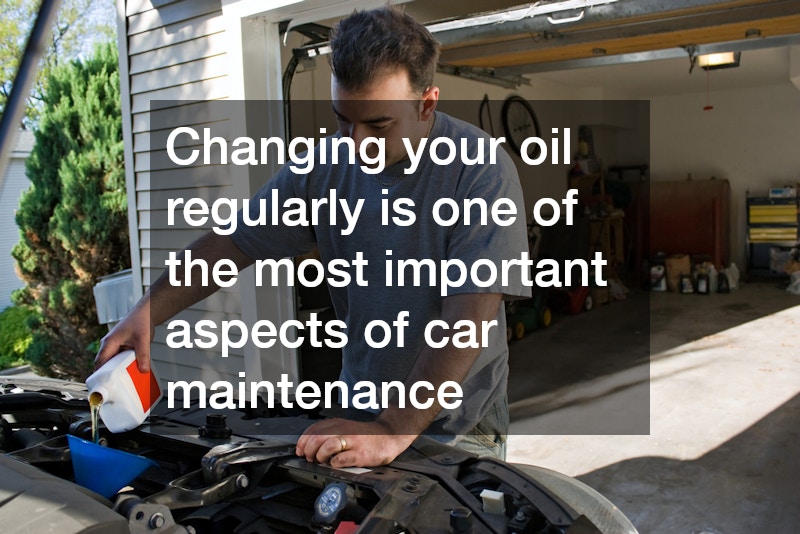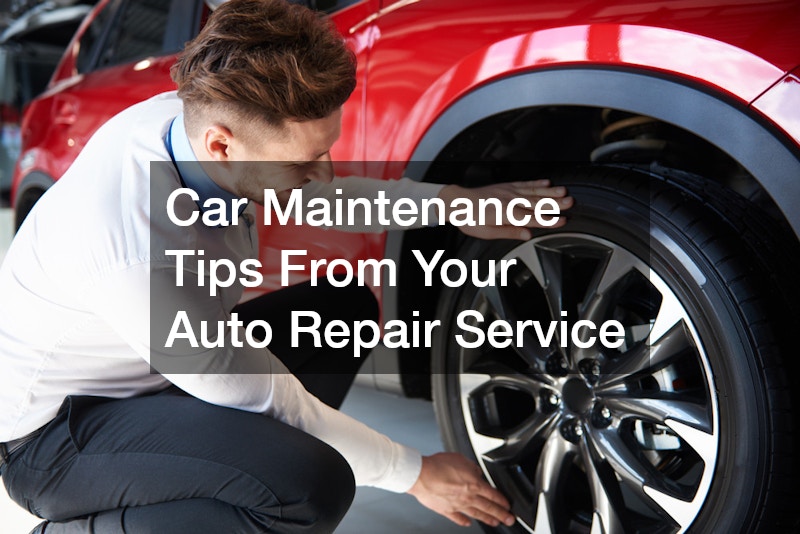Maintaining your vehicle is essential for its longevity and performance. Regular car maintenance helps prevent costly repairs, improves safety, and enhances the overall driving experience. These useful tips and answers to common questions about car maintenance come directly from your auto repair service.
Perform Regular Maintenance Tasks
Performing essential car maintenance tasks is vital for keeping your vehicle in peak condition. Regularly checking and replacing fluids, including the engine oil, coolant, and transmission fluid, is crucial for preventing engine damage.
Additionally, inspecting the vehicle’s belts and hoses can help you avoid unforeseen breakdowns.
Another often overlooked task is ensuring that your filters—such as the air and cabin filters—are clean and functioning properly. Dirty filters can reduce fuel efficiency and negatively impact your vehicle’s performance. Regularly checking and replacing these filters can lead to significant savings at the pump.
Finally, it’s essential to maintain comprehensive documentation of your car’s maintenance history. Keeping a log of all repairs and services performed can help you identify patterns, spot potential issues early, and provide valuable information to your auto repair technician during inspections.
Get Your Oil Changed
Changing your oil regularly is one of the most important aspects of car maintenance. Most manufacturers recommend an oil change every 3,000 to 7,500 miles, but this can vary based on the vehicle type and oil used. Regular oil changes ensure that your engine runs smoothly and efficiently, reducing wear and tear on critical components.
The oil in your engine lubricates and cools moving parts, and over time, it can become contaminated with dirt, debris, and other harmful particles. Neglecting to change your oil can lead to engine problems, reduced fuel economy, and even complete engine failure. By adhering to a regular oil change schedule, you can prolong the life of your engine.
It’s also important to use the right type of oil for your vehicle. Consult your owner’s manual or a trusted auto repair service to determine the best oil for your specific make and model. This not only promotes optimal engine health but also ensures you meet any warranty requirements for your vehicle.
Pay Attention to Warning Signs
Paying attention to the warning signs of brake issues is crucial for your safety and that of others on the road. One of the most obvious signs that your brakes may need attention is a squeaking or grinding noise when you apply the brakes. These sounds can indicate worn-out brake pads or other issues that require immediate professional inspection.
Another critical warning sign is a pulsation or vibration in the brake pedal when you apply the brakes. This could indicate warped brake rotors, which can lead to reduced braking efficiency and increased stopping distance. If you experience any of these symptoms, it is essential to consult your auto repair service promptly.
Additionally, if your vehicle pulls to one side when you brake, this could suggest uneven brake pad wear or issues with your brake system. Ignoring these warning signs can lead to more severe issues down the road, making it even more important to prioritize brake maintenance and repairs.
Keep Your Tires in Good Condition
Keeping your tires in good condition is vital for your vehicle’s safety and performance. One of the most important aspects of tire maintenance is ensuring that they are properly inflated. Under-inflated tires can lead to poor handling and increased fuel consumption, while over-inflated tires can result in reduced grip and uneven wear.
Regularly rotating your tires is another crucial maintenance task. Tire rotation involves moving the tires from one position to another on the vehicle, which promotes even wear and extends tire life. Most manufacturers recommend rotating your tires every 5,000 to 8,000 miles, but be sure to consult your owner’s manual for specific guidelines.
It’s also essential to monitor tire tread depth. Worn tires can significantly reduce traction, especially in wet or slippery conditions. Using a tread depth gauge or the penny test can help you determine when it’s time to replace your tires. Maintaining good tires not only enhances safety but also improves fuel efficiency and overall driving experience.
Get Regular Service Checks and Inspections
Regular service checks and inspections offer several benefits that contribute to the longevity and reliability of your vehicle. One primary advantage is that they allow for early detection of potential issues before they escalate into costly repairs. Identifying problems early can save you both time and money in the long run.
Additionally, routine inspections ensure that all essential vehicle systems—such as brakes, suspension, and electrical systems—are functioning correctly. This comprehensive evaluation helps maintain the safety and performance of your vehicle, providing peace of mind for you and your passengers.
Moreover, a well-maintained vehicle typically retains its value better than one that is neglected. Potential buyers often seek vehicles with a comprehensive service history, and regular maintenance can positively impact the resale value when it’s time to sell or trade in your car.
Regular car maintenance is key to ensuring the efficiency and safety of your vehicle. By understanding the most common maintenance concerns and addressing them proactively, you can save time and money in the long run. Stay informed, stay aware of your vehicle’s needs, and always consult with your trusted auto repair service for any questions or concerns.




